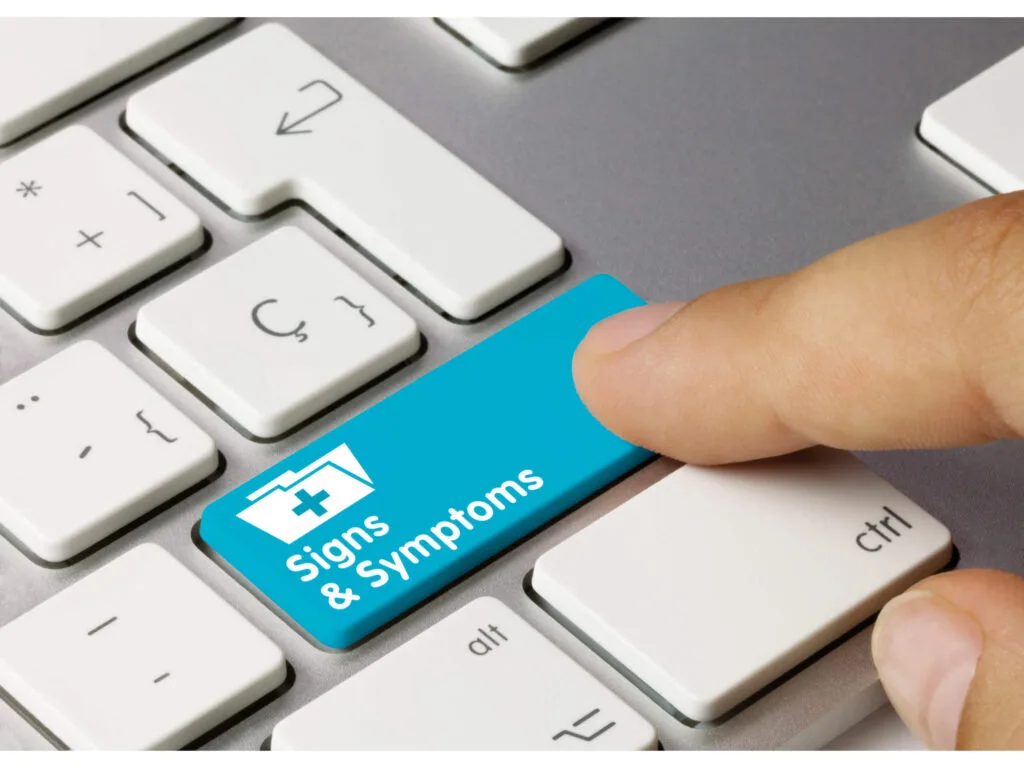Join our mailing list and unlock a free guide
to navigate the admission process
I subscribe to the useful newsletter with special offers in accordance with the privacy policy

By clicking “Send Message” below, I agree to receive recurring marketing and/or non-marketing text messages from Avedis Recovery Center, which may be sent using an automated system.
14
February 17 2024

In the world of addiction recovery, hope springs eternal, and the power of therapy reigns supreme. At Avedis Detox and Recovery, we know the profound impact addiction can have on people abusing substances and their loved ones. That’s why we have dedicated ourselves to providing top-notch addiction treatment programs that integrate the transformative power of therapy.
In this blog, we will embark on a journey to explore the role of addiction therapy in the recovery process. From evidence-based techniques to integrative approaches, we will delve into the various therapy modalities employed at Avedis Detox and Recovery to empower them on their path to lasting recovery. Suppose you’re seeking help or supporting a loved one in their recovery journey. This blog is a great resource for understanding addiction therapy’s vital role in fostering healing and reclaiming lives. Join us as we unlock the doors to hope, resilience, and a brighter future.
Addiction therapy techniques are the cornerstone of effective treatment, providing the necessary tools to overcome addiction’s challenges. At Avedis Detox and Recovery, we employ a range of evidence-based therapies tailored to each person’s needs and goals.
Cognitive-Behavioral Therapy (CBT) is a widely recognized and effective approach that addresses the connection between thoughts, emotions, and behaviors. By identifying and challenging negative thought patterns and behaviors, they can develop healthier coping mechanisms and break free from the cycle of addiction.

At the core of Cognitive-Behavioral Therapy (CBT) lies the understanding that our thoughts influence our feelings and actions. This therapeutic approach helps to recognize how negative thoughts contribute to distressing emotions and self-destructive behaviors. By challenging and replacing these negative thoughts with more balanced and realistic ones, they can improve their emotional well-being and make positive life changes. CBT focuses on the present moment, actively working to identify and address problematic thoughts and behaviors that contribute to addiction.
CBT plays a crucial role in addiction recovery by equipping people with valuable skills and strategies to manage cravings, develop healthier coping mechanisms, and prevent relapse. They learn to identify triggers and high-risk situations through CBT and develop effective strategies to navigate them. Therapists guide them in exploring underlying mental health matters. Trauma, stress, or other co-occurring mental health disorders are examined. This can contribute to addictive behaviors. By addressing these underlying factors, they gain a deeper understanding of themselves and the root causes of their addiction. CBT empowers people to take an active role in their recovery journey, helping them build resilience and develop the necessary tools for long-term sobriety.
Motivational Interviewing (MI) is a person-centered approach that explores and resolves ambivalence to change. It aims to enhance motivation and commitment to recovery by fostering a collaborative and non-judgmental therapeutic relationship.
The spirit of Motivational Interviewing (MI) is rooted in creating a safe and supportive therapeutic space. Therapists practicing MI embody empathy, genuine curiosity, and a non-confrontational attitude. They actively listen to concerns, values, and goals without imposing their agenda or judgments. MI fosters a partnership between the therapist and the client, working together to explore their intrinsic motivations and reasons for change. By embracing the spirit of MI, therapists build trust and create an environment where clients feel empowered to express themselves openly.
In addiction therapy, Motivational Interviewing (MI) helps to strengthen their commitment to recovery by exploring their reasons for change. Through open-ended questions, therapists encourage clients to reflect on their values, goals, and the impact of addiction on their lives. By highlighting discrepancies between their current behaviors and their desired outcomes, they are motivated to consider a change. Therapists support clients in resolving their ambivalence, emphasizing the importance of autonomy and personal choice. MI acknowledges patients recover effectively when they feel heard, respected, and in control of their decisions. Through the application of MI, people can harness their intrinsic motivation to initiate and sustain positive behavioral change in their journey toward recovery.
Integrative approaches combine various therapeutic modalities to address the complexity of addiction and promote holistic healing. At Avedis Detox and Recovery, we offer integrative therapies that address the recovery’s emotional, psychological, and spiritual aspects.
Dialectical Behavior Therapy (DBT) is a comprehensive approach that combines individual therapy, skills training, and group support. It focuses on emotional regulation, distress tolerance, interpersonal effectiveness, and mindfulness.
DBT (Dialectical Behavior Therapy) emphasizes the practice of mindfulness as a key component to support individuals in their emotional well-being. Through mindfulness, people learn to observe and accept their emotions without judgment. Individuals can effectively manage intense emotions and make healthier choices by cultivating this non-judgmental awareness. Mindfulness allows individuals to step back and become more aware of their emotions in the present moment without getting overwhelmed or reactive. This increased self-awareness and acceptance of emotions provide a solid foundation for developing emotional regulation skills. By developing these skills, individuals can navigate their emotions more effectively, leading to improved emotional well-being and the ability to make healthier life choices.
DBT (Dialectical Behavior Therapy) equips individuals with practical skills to navigate challenges, communicate effectively, and build healthy relationships. Firstly, these skills provide individuals with a solid foundation to navigate life’s difficulties and overcome obstacles. Additionally, they enable individuals to communicate their thoughts and feelings in a clear and assertive manner, fostering healthier and more meaningful connections with others. Moreover, by learning and implementing these skills, individuals enhance their emotional resilience, which helps them effectively cope with stressors and maintain stability in their recovery journey. These valuable skills empower individuals in their sobriety, supporting them to make positive choices and improve their overall well-being. Ultimately, DBT offers individuals a comprehensive toolkit to navigate life’s challenges, communicate effectively, build healthy relationships, and foster personal growth and recovery.

Eye Movement Desensitization and Reprocessing (EMDR) is a specialized therapy primarily used for people who have experienced trauma. This unique therapeutic approach effectively facilitates the processing and resolution of traumatic memories. By utilizing specific techniques, such as eye movements or other forms of bilateral stimulation, EMDR helps individuals to safely and effectively reprocess their traumatic experiences. As a result, it diminishes the impact of those memories on addiction and promotes emotional healing. EMDR, in essence, offers a pathway for individuals to address their trauma, reduce its influence on addiction, and ultimately work toward healing and recovery.
Trauma can contribute to the development and maintenance of addiction. EMDR targets traumatic memories and works to desensitize the emotional charge associated with them, allowing them to heal from past traumas.
EMDR uses bilateral stimulation like eye movements or tapping. In this way, it helps to reprocess traumatic memories, integrate new adaptive beliefs, and reduce distressing symptoms. This therapy promotes emotional healing and paves the way for sustained recovery.
Medication-Assisted Treatment (MAT) is an evidence-based approach that combines medications with behavioral therapies to address substance use disorders. MAT offers a comprehensive and effective approach to treating substance use disorders by integrating medications and behavioral therapies. It has been extensively studied and proven to be effective in multiple ways. Firstly, MAT helps reduce withdrawal symptoms, providing relief and support during the early stages of recovery. Secondly, it plays a crucial role in preventing relapse, offering individuals a better chance at sustained recovery. Lastly, MAT promotes long-term recovery by addressing addiction’s biological, psychological, and social aspects. Through this holistic approach, MAT supports individuals in achieving and maintaining their recovery goals.
Medications used in MAT help to manage cravings, reduce withdrawal symptoms and normalize brain chemistry affected by substance abuse. Medical professionals carefully prescribe and monitor these medications to ensure their safety and effectiveness in supporting recovery.
The FDA approves Several medications for MAT, depending on the specific substance use disorder being treated. Opioid addiction medications, including methadone, buprenorphine, and naltrexone, may be prescribed. Medications like acamprosate and disulfiram are commonly used to treat alcohol use disorder.
MAT offers numerous benefits in addiction therapy. It helps manage cravings, reduce the risk of relapse, and stabilize their physical and mental well-being. MAT can improve treatment retention rates. MAT improves recovery and enhances the overall quality of life. Yet it’s vital to acknowledge that MAT has limitations, and effectiveness can vary based on personal circumstances and preferences. Clients must work closely with their healthcare providers to find the right medication and dosage that suits their needs.
In addition to medications, comprehensive supportive care is integral to MAT. It combines behavioral therapies and counseling to address addiction’s psychological and emotional aspects. This holistic approach helps develop coping skills, improve self-awareness, and make positive behavioral changes that support their recovery journey.

Integrated behavioral therapies, such as Cognitive-Behavioral Therapy (CBT) and contingency management, are often incorporated into MAT. These therapies help identify and change negative thought patterns, develop healthy coping mechanisms, and learn essential skills for relapse prevention. They provide the tools and strategies to navigate challenges, manage stress, and maintain long-term recovery.
Regular monitoring and adjustments of medications are crucial in Medication-Assisted Treatment (MAT). Firstly, healthcare providers closely monitor the progress of individuals undergoing MAT. Secondly, they continuously evaluate the effectiveness of the medications being used. Additionally, they make necessary adjustments to the dosage. This ongoing monitoring process ensures that clients receive optimal care tailored to their needs. Moreover, it helps to minimize potential side effects or complications that may arise. By maintaining this careful and consistent monitoring, healthcare providers can ensure that individuals receive the best possible treatment outcomes and support in their recovery journey.
Avedis Detox and Recovery offer comprehensive outpatient addiction therapy programs that provide a continuum of care to support people in their recovery journey. Firstly, their programs include multiple services to meet clients’ varied needs. Secondly, they provide a seamless transition between different levels of care, ensuring a consistent and coordinated approach to treatment. Additionally, Avedis Detox and Recovery focuses on personalized care plans tailored to each individual’s unique circumstances. Moreover, their programs integrate evidence-based therapies and holistic approaches to address addiction’s physical, emotional, and social aspects. By offering this comprehensive and individualized continuum of care, Avedis Detox and Recovery strives to empower individuals and support them on their path to recovery.
The Partial Hospitalization Program (PHP) at Avedis Detox and Recovery offers structured and intensive treatment. Clients return home in the evenings. PHP provides comprehensive therapeutic services, including individual counseling, group therapy, medication management, and holistic approaches. The program addresses each person’s unique needs and provides a supportive environment for recovery.
PHP consists of structured daily schedules that include therapy sessions, educational groups, and various evidence-based interventions. Individual counseling provides personalized support and guidance. Group therapy fosters peer support and connection. PHP integrates holistic therapies. Yoga, mindfulness, and art therapy promote well-being and self-discovery.
PHP in outpatient settings enables intensive treatment while maintaining daily routines and responsibilities, providing a supportive and structured environment. Given that, participants can focus on their recovery while benefiting from the support of a professional treatment team. This outpatient setting offers a balance between intensive therapy and the ability to return home, fostering a smoother transition into daily life and facilitating the application of newly acquired skills in real-world settings.
Avedis Detox and Recovery’s Intensive Outpatient Program (IOP) is flexible and provides comprehensive care in each stage of their recovery journey. IOP offers a step-down level of care following a higher level of intensity, such as residential or PHP, or as an initial treatment option for those who may not require more intensive programs.
The Intensive Outpatient Program (IOP) offers a distinct advantage: flexibility. By choosing IOP, clients can prioritize their personal and professional commitments while continuing to receive critical therapy and support. Evening and weekend sessions make this possible, ensuring that therapy remains accessible and continuity of care is achieved. This approach helps sustain progress while significantly re-engaging with their community.

In the Intensive Outpatient Program (IOP), clients learn to balance their treatment commitments with the demands of daily life. Firstly, through group therapy, individual counseling, and psychoeducation, clients develop essential skills for relapse prevention, stress management, and healthy coping mechanisms. These therapeutic components work together to equip individuals with the necessary tools to maintain their recovery and effectively manage life’s challenges. Secondly, the IOP creates a supportive community where individuals can openly share their experiences, gain valuable insights, and build a strong peer support network. This sense of community enhances the overall treatment experience and fosters a supportive environment for individuals to grow and heal. Additionally, the IOP offers continued access to various therapeutic modalities, providing those with ongoing opportunities to explore and address the underlying issues contributing to their addiction. By addressing these underlying issues, individuals can make lasting changes and further enhance their recovery journey.
Addiction therapy is pivotal in the recovery journey at Avedis Detox and Recovery. Evidence-based techniques include Cognitive-Behavioral Therapy (CBT), Motivational Interviewing (MI), Dialectical Behavior Therapy (DBT), and Eye Movement Desensitization and Reprocessing (EMDR). Our programs offer comprehensive support tailored to each unique need.
CBT, which stands for Cognitive Behavioral Therapy, helps individuals challenge negative thought patterns and develop healthier coping mechanisms. As a result, it empowers them to take control of their recovery. On the other hand, MI (Motivational Interviewing) fosters motivation and commitment to change by creating a safe and supportive therapeutic environment. Additionally, integrative approaches, such as DBT (Dialectical Behavior Therapy), incorporate mindfulness, emotional regulation, and interpersonal effectiveness skills. These skills work together to promote holistic healing. Lastly, EMDR (Eye Movement Desensitization and Reprocessing) specifically addresses the impact of trauma on addiction. It facilitates resolution and emotional healing, allowing individuals to progress in their recovery journey.
At Avedis Detox and Recovery, our outpatient addiction therapy programs provide a continuum of care tailored to specific needs. Our Partial Hospitalization Program (PHP) offers a structured environment with comprehensive support. Our Intensive Outpatient Program (IOP) provides flexibility and continuity of care. Medication-Assisted Treatment (MAT) combines medications with integrated behavioral therapies, supporting them on their journey to recovery.
By exploring the role of addiction therapy, they can develop a deeper understanding of the tools and techniques that aid recovery. Our dedicated team of professionals at Avedis Detox and Recovery is committed to providing compassionate and effective addiction treatment. We invite you to call us at 833.514.0579 to verify insurance and begin the admissions process today.
Remember, recovery is possible, and with the right therapy and support, you can embark on a transformative journey toward a healthier, more fulfilling life. Let Avedis Detox and Recovery be your guide to lasting recovery.
14
February 17 2024
More info
Whant to learn more about The Role of Addiction Therapy in Recovery?
Personalized addiction treatment centered entirely on your unique needs, ensuring the highest standards of quality care tailored specifically for your journey towards recovery
Read more
As the sun rises over the picturesque landscape of Southern California it illuminates the path towards a new beginning. It’s important to recognize the unique benefits of alcohol detox and addiction treatment away from home in this beautiful setting. For many individuals struggling with alcohol addiction, relocating to a different environment can provide essential change. […]
18 February 2024
25 min read
Read more

Narcotics Anonymous (NA) provides many enrichments for those who attend their meetings regularly. But the benefits of Narcotics Anonymous meetings are also available for newcomers. NA is a place that provides information about how to stop substance abuse and how to maintain and support others in a community that fights substance use. The benefits of […]
7 February 2024
3 min read
Read more

If you have questioned your relationship with alcohol, you’re not alone. Many people wonder if their drinking habits might indicate a more significant issue. If you have asked yourself, “Am I an Alcoholic?” keep reading. Recognizing the signs and symptoms of alcoholism can be a critical step toward seeking help and changing your life. In […]
12 February 2024
7 min read
Read more

If you are in addiction recovery, you know how important it is to stay present in your day-to-day life. Staying present means having a sense of being rooted in your experience in the current moment without concern for the past or future. When you spend time ruminating, obsessively thinking about your past, or forecasting your […]
10 February 2024
3 min read
Read more
Subscrbe Newsletter
Subscribe our Newsletter for new blog posts, tips & new photos. Let's stay updated!